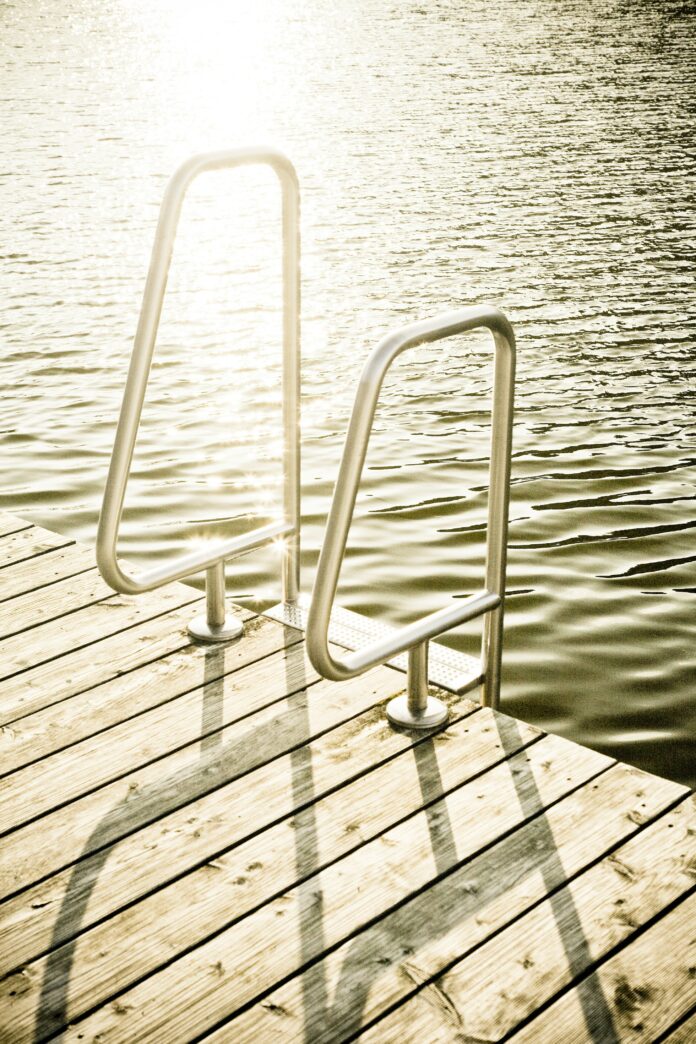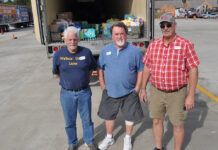CULLMAN, Ala. – Local law enforcement, public safety representatives and first responders have collaborated to create a list of ways to practice safety in and around the water, around fireworks and while traveling this summer.
Cullman Police Chief David Nassetta said there are different laws when it comes to safety with the city versus the county.
“As far as fireworks are concerned, they are prohibited from being used in the city limits,” Nassetta said. “Boat docks are also prohibited on Lake Catoma. The same with boating. The majority of boating inside the city limits is done in small fishing boats and not anywhere close to what goes on in Smith Lake.”
City of Cullman Public Safety Director Brian Bradberry said regardless of what adventures you choose to take, making safe, healthy choices is key to a good summer.
“Summer is an exciting time of the year and we know everyone wants to have fun,” Bradberry said. “However, it’s crucial to prioritize safety during this time. Our dedicated public safety professionals have outlined essential tips to ensure a safe summer experience for all. While accidents happen, rest assured that our team stands ready to assist should any emergencies arise. We urge everyone to make safety a top priority and have a wonderful summer.”
Cullman Fire Rescue Chief Darren Peeples shared several summer safety tips, including advice for boating, docking and firework safety.
“Dock safety is indeed crucial, especially when it comes to preventing electric shocks near water,” Peeples said. “We have several measures to enhance dock safety and prevent electrical hazards:
- Regular inspections: Conduct routine inspections of the dock’s electrical systems by qualified professionals to ensure that wiring, outlets and any electrical equipment are in good condition and up to code.
- Ground fault circuit interrupters (GFCIs): Install GFCIs on all electrical outlets near the dock and any outdoor outlets. GFCIs detect ground faults and quickly shut off power to prevent electric shocks.
- Proper wiring installation: Ensure that all electrical wiring on the dock is properly installed and insulated to prevent exposure to water. Use marine-grade wiring and connectors designed for outdoor use.
- Keep electrical devices dry: Store electrical devices, such as power tools and chargers, in dry, weatherproof containers when not in use to prevent water damage and electrical hazards.
- Safe use of extension cords: Avoid using extension cords on the dock whenever possible. If extension cords must be used, use only outdoor-rated cords and keep them clear of water to prevent electrical shocks.
- Secure wiring and cables: Keep electrical wiring and cables securely fastened and out of the water to prevent accidental contact with boats, swimmers or marine life.
- Proper lighting: Ensure that the dock is adequately illuminated with safe, waterproof lighting to improve visibility and reduce the risk of accidents, especially at night.
- Prohibit swimming near docks with electrical equipment: Establish clear rules and guidelines prohibiting swimming or diving near docks with electrical equipment to minimize the risk of electric shocks.
- Regular maintenance: Conduct regular maintenance of the dock’s electrical systems, including cleaning and inspecting outlets, wiring and equipment, to identify and address any potential hazards promptly.
- Educate dock users: Provide clear signage and education materials about dock safety, including the dangers of electrical shock and how to respond in an emergency.
- Emergency response plan: Develop and communicate an emergency response plan for dealing with electrical accidents or incidents on the dock. This plan should include procedures for shutting off power, administering first aid and contacting emergency services.
- Training for dock personnel: Train dock personnel, including staff and volunteers, on proper electrical safety procedures and emergency response protocols.
- Life jackets: Ensure that there are enough properly fitting life jackets for every person onboard, and make wearing them a rule, especially for children and non-swimmers.
- Communication devices: Have reliable communication devices on board, such as a VHF marine radio or a mobile phone in a waterproof case, to call for help in case of emergency.
- Navigation tools: Carry navigational tools like GPS, compass and charts to help you navigate safely, especially in unfamiliar waters or during adverse weather conditions.
- Emergency signaling devices: Keep distress signals like flares, whistles and signal mirrors on board to attract attention and signal for help if needed.
- First aid kit: Have a well-stocked first aid kit onboard to handle minor injuries and medical emergencies until professional help arrives.
- Fire extinguishers: Install and regularly check fire extinguishers to quickly extinguish small fires before they escalate. Ensure that everyone knows their location and how to use them.
- Weather monitoring: Stay updated on weather forecasts and be prepared to change plans or seek shelter if adverse weather approaches.
- Boat maintenance: Regularly inspect and maintain your boat, including the engine, hull and electrical systems, to prevent mechanical failures or malfunctions while on the water.
- Anchors and lines: Carry appropriate anchors and lines to secure your boat safely in case of engine failure, strong currents or adverse weather conditions.
- Person overboard procedures: Establish and practice man overboard procedures to quickly and effectively respond if someone falls overboard.
- Boating rules and regulations: Familiarize yourself with and adhere to boating rules and regulations specific to your area, including speed limits, navigation rules and designated boating areas.
- Boating safety courses: Consider taking boating safety courses to learn essential navigation skills, safety procedures and emergency protocols.
- Alcohol and drug awareness: Avoid operating the boat under the influence of alcohol or drugs, as they impair judgment, coordination, and reaction time, increasing the risk of accidents.
- Stay alert and vigilant: Assign a designated lookout to watch for other boats, hazards or changes in the environment while underway.
“By practicing these safety measures and being prepared for emergencies, boaters can enjoy their time on the water while minimizing risks and ensuring a safe experience for everyone onboard,” Peeples said. “Also, fire safety is crucial when using fireworks. Follow local laws and regulations. Ensure that you are legally allowed to use fireworks in your area and adhere to any restrictions or guidelines provided by local authorities. There is a no firework ordinance in the City of Cullman Code of Ordinances Chapter 22 Article V.”
Another point to follow, Peeples said, is to choose a safe location for fireworks.
“Select a clear, open area away from buildings, dry grass or other flammable materials,” he said. “An open field or a designated fireworks area is ideal. Make sure to keep water handy. Have a bucket of water, a hose or a fire extinguisher nearby to quickly extinguish any accidental fires. Also make sure to read instructions carefully for fireworks packaging. Pay attention to safety guidelines and recommended distances.”
Other fireworks tips he shared included:
- Designate a shooter: Assign one responsible adult to handle lighting the fireworks. This person should be sober and familiar with fireworks safety procedures.
- Wear safety gear: Consider wearing safety glasses and gloves while handling fireworks to protect yourself from sparks and debris.
- Use stable launching surfaces: Place fireworks on a stable, flat surface before lighting them. Avoid tilting or unstable platforms that could cause the fireworks to tip over.
- Keep spectators at a safe distance: Establish a safe perimeter around the fireworks launch area and ensure that spectators remain outside of it. This helps prevent injuries from fireworks fallout.
- Never re-light malfunctioning fireworks: If a firework fails to ignite or detonate properly, do not attempt to relight it. Wait at least 20 minutes, then soak it in water before disposing of it properly.
- Dispose of used fireworks properly: After the fireworks display, douse all used fireworks with water to ensure they are fully extinguished. Dispose of them in a metal container to prevent accidental fires.
- Monitor weather conditions: Avoid using fireworks during windy or dry conditions, as this increases the risk of fires spreading.
- Keep pets indoors: Loud noises and bright lights from fireworks can frighten animals. Keep pets indoors or in a secure, comfortable location away from the fireworks display.
“By following these preventative measures, you can help ensure a safe and enjoyable fireworks experience for everyone involved,” Peeples said.
Copyright 2024 Humble Roots, LLC. All Rights Reserved.























